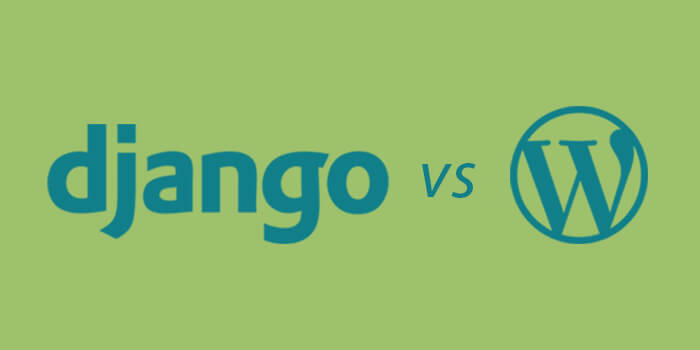
In the early stages of a web development project, your first step is a big decision: what’s the right tool for the job? What kind of software makes the most sense for me?
A lot of our clients come to us at this stage, seeking advice on how to approach this decision. And it’s an important one: once you invest in a particular platform, the cost to switch later may be high. You’ll want to make sure you have all the info before making your decision.
Should you use WordPress or Django?
To answer that question, I first need to explain what each of these systems are because we’re actually talking apples and oranges, or maybe apples and fruit salads.
When people say WordPress, they’re referring to the content management system (CMS) that’s used to create and upload the website content. Basically, WordPress is the dashboard through which you organize text and images to display on your website. WordPress is built using the PHP programming language.
Django, on the other hand, is what’s called a web framework. Built on the powerful Python programming language, it’s a set of tools and libraries that can be rapidly deployed to build custom web applications. If your project needs a CMS, Django has a variety of options to choose from. (Our favorite is Wagtail CMS.)
When is WordPress the right fit?
Are you starting a blog, a brochure site, or a small e-commerce site? Go with WordPress.
WordPress is a straightforward and inexpensive tool for a basic site. With a plethora of free themes to download, it’s a quick way to get online and start promoting your content/business/side hustle. Although, if you’re going this route, you may also want to check out options like Squarespace and Wix for even easier site-builders.
If you started with WordPress but realize you want to customize the user experience in ways that the CMS doesn’t facilitate, or you want to connect to custom external applications, then it’s time to look for a more powerful tool.
Why does Caktus prefer Django?
We work with clients to develop custom, scalable, innovative web solutions that deliver sustainable business value, and for that we need the flexibility and power that Django provides.
We work with you to identify specific business challenges that can be addressed through a software solution. WordPress is far too constrained to be useful in this context — we need to customize the application to your specific and unique needs, and for that we need a flexible and comprehensive framework. The complexity of your work requires a powerful solution.
There are also specific things that Django simply does better. Does your project include any of these?
- Interactive or dynamic content
- Customizable API integrations
- Strong data security measures
- Rapid scalability
- Custom reports & charts
- Different views for different types of users
- Custom validation of data
- Mobile-friendly applications
- Fine-grained user permissions
Basically, if you want full control of your user experience, then you’ll definitely want to pick Django.
After all, there’s a reason sites like Instagram, Pinterest, and EventBrite use Django rather than WordPress.
So what’s the next step?
If you think your project falls into the WordPress category, go for it! Head to wordpress.org to learn more.
If you think Django will better suit your needs, we’d be happy to talk it through and share some advice. Get in touch with us now.


